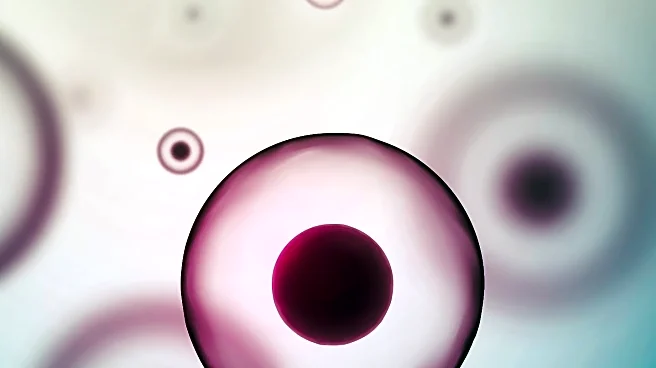What is the story about?
What's Happening?
Researchers at Karolinska Institutet, in collaboration with the Department of Pathology at Karolinska University Hospital, have discovered that pancreatic tumor cells can invade and grow into damaged parts of normal pancreatic tissue, creating new environments for their growth. This study, published in Nature Communications, analyzed samples from 108 patients who underwent surgery at Karolinska University Hospital. The findings reveal that tumor cells adapt to the environment they find themselves in, exhibiting different characteristics in damaged areas compared to the connective tissue-rich parts of the tumor. The damaged areas contain support cells expressing a specific protein, NGFR, linked to the healing process of damaged tissue. This adaptation may influence how the tumor develops and responds to treatment.
Why It's Important?
The discovery of pancreatic tumor cells exploiting damaged tissue is significant as it provides insights into the aggressive nature of pancreatic cancer, which has seen little improvement in survival rates. Understanding how tumor cells adapt to different environments within the pancreas could lead to more effective treatment strategies. The presence of support cells expressing NGFR in damaged tissue suggests potential targets for therapeutic intervention. This research highlights the need for innovative approaches to tackle pancreatic cancer, potentially improving patient outcomes and survival rates.
What's Next?
Further research is needed to explore the implications of tumor cells adapting to damaged tissue environments and how this affects treatment response. The study suggests that targeting the NGFR protein in support cells could be a promising avenue for developing new therapies. Collaboration between researchers and clinicians will be crucial in translating these findings into clinical practice, potentially leading to more personalized and effective treatment options for pancreatic cancer patients.
Beyond the Headlines
The study raises ethical considerations regarding the treatment of pancreatic cancer, emphasizing the importance of understanding tumor biology to develop targeted therapies. The ability of tumor cells to exploit damaged tissue highlights the complexity of cancer progression and the need for comprehensive research to address these challenges. Long-term, this research could lead to shifts in how pancreatic cancer is diagnosed and treated, with a focus on the microenvironment of tumors.
















